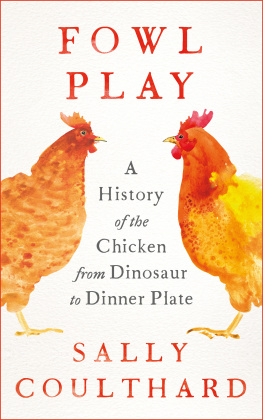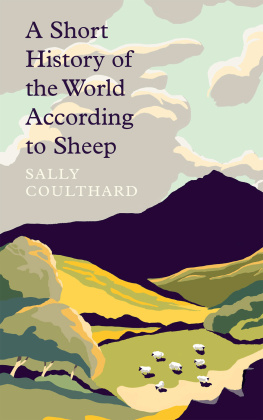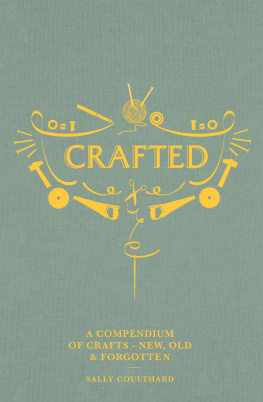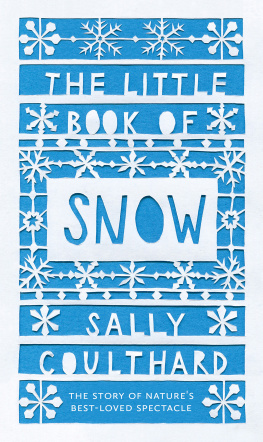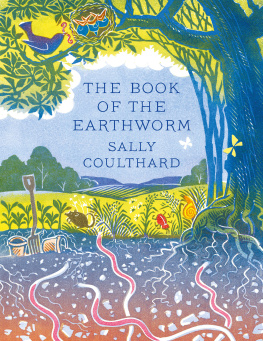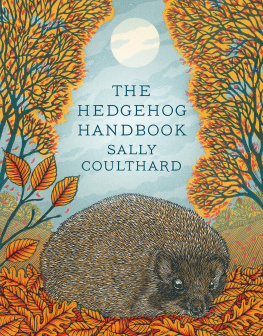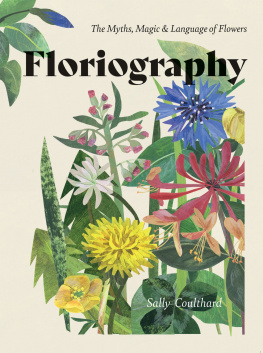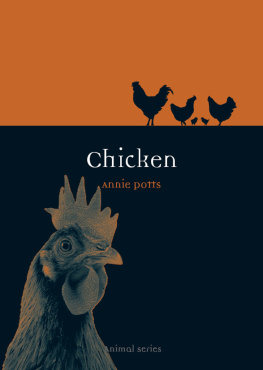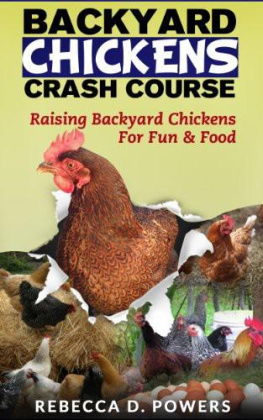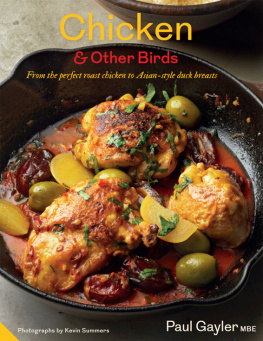FOWL
PLAY
The Barn
A Short History of the World According to Sheep
The Book of the Barn Owl
The Book of the Earthworm
The Bee Bible
The Hedgehog Handbook
The Little Book of Snow
The Little Book of Building Fires
FOWL
PLAY
A History of the Chicken
from Dinosaur to Dinner Plate
SALLY
COULTHARD
www.headofzeus.com
First published in the UK in 2022 by Head of Zeus Ltd,
part of Bloomsbury Publishing Plc
Copyright Sally Coulthard, 2022
The moral right of Sally Coulthard to be identified as the author of this work has been asserted in accordance with the Copyright, Designs and Patents Act of 1988.
All rights reserved. No part of this publication may be reproduced, stored in a retrieval system, or transmitted in any form or by any means, electronic, mechanical, photocopying, recording, or otherwise, without the prior permission of both the copyright owner and the above publisher of this book.
A catalogue record for this book is available from the British Library.
ISBN (HB): 9781801104470
ISBN (E): 9781801104494
Illustrations by Alice Pattullo
Head of Zeus Ltd
First Floor East
58 Hardwick Street
London EC 1 R 4 RG
WWW . HEADOFZEUS . COM
For Madeleine, Isabella and Emma
Wondrous the Gods, more wondrous are the Men,
More Wondrous, Wondrous still the Cock and Hen.
William Blake (17571827)
CONTENTS

Lavender Pekin
Its raining and the hens look particularly peeved. I often think their feathers are poorly suited to the English weather. They sit, huddled in the entrance to the hay barn, like disgruntled pensioners waiting for a bus. Winter must be disorientating for a creature descended from the balmy jungles of Southeast Asia. Still, Andy, our formidable cockerel, keeps up their spirits with his endless provocative dances a jaunty sailors jig with a sideways hop and one wing raised. Few of them can resist also his conscientious tidbitting, making gentle clucks to his ladies to alert them to a newly discovered morsel.
The cockerel was named by my youngest daughter after my father, Andrew, a man of immense character and kindness. We raised Andy from an egg, with the intention of hand-rearing a male bird as an interesting project. Naming livestock is fatal, however, and almost always ends in heartbreak as nature picks them off, one by one, as a lesson against favouritism. Against all odds, Andy has proved indomitable and unusually tame. The farm is now graced with a bird who defends his flock with kamikaze bravery but feels no shame in coming to the window ledge for a tickle under his wattle. I know of no other cockerel who will be cuddled tightly and maternally jogged up and down, like a pudgy baby.
Ive kept dozens of chickens over the years. Each had its own unique character and, as with humans, some were more memorable and likeable than others. One fat hen, a black Marans called Brenda, seemed to prefer the children to her flock mates and would spend hours keeping the girls company, only wandering off to lay the occasional chocolate-brown egg. Corralled into kids pretend play, Brenda would endure endless tea parties and tepee adventures. I have an abiding memory of Brenda hurtling down a snowbound field in a plastic sledge, only to come to a gentle halt and step out and carry on pecking as if nothing was amiss.
We also once inherited ten pure-white Dorking hens from a redoubtable but kindly dowager of a very large country house. Like Mrs Pumphreys Tricki Woo, the birds had known nothing but luxury and laid perfectly white eggs only when the choicest morsels were provided and the mood struck. Their pampered early life, however, put them in good stead. The whole flock lived an astonishingly long life. All made it to ten and the eldest reached thirteen years of age before finally falling off her perch, both literally and metaphorically.
And then there was Cato, a Rhode Island Red of startling intelligence who excelled at finding new and unusual ways to sneak into the farmhouse. She was the mistress of stealth, tiptoeing through open windows and doors left ajar, avoiding detection while helping herself to the dog bowl. She was also fantastic at hiding. Open a cupboard or shed and shed leap out. Cato even made it down the farm track hidden in the footwell of a DPD van. She got half a mile away before a very surprised courier caught a glimpse of red feathers out of the corner of his eye and was forced to turn around.
I believe my flock and, indeed, all chickens are truly fascinating. Of all animals, they perhaps best represent the strange and often contradictory way we humans treat other species. Theyre both beloved pet and cheap commodity, symbol of rural simplicity and icon for misery meat and the industrialisation of food. The chicken is also a bird most of us are both deeply familiar with and yet know very little about. Its evolutionary past is full of surprises, as is the birds journey from jungle to domestication.
From fighter to farmed food, scientific tool to pampered pet, the chicken has been forced to bend to almost every human whim. Great civilisations valued the chicken for its many uses, from ceremonial rites to celebratory feasts, cruel pastimes to status symbols. In its various incarnations egg, chick, pullet, hen, cockerel the chicken has proved a shorthand for human relationships and emotions. We use chicken-related words to express a whole range of feelings and situations from mother hens and feeling broody to cockiness and flock mentality. Religion and superstition have also dragged the chicken centre stage, whether the bird likes it or not. A vast array of belief systems have chickens, eggs and cockerels at their heart, handy metaphors for rebirth and innocence but also vigilance and protection.
There are, at any one time, over twenty billion chickens living on Earth thats three chickens for every person alive. And, for a creature that doesnt fly very far, its somehow managed to colonise the world. Only one continent, Antarctica, is fowl free. From the frozen wastes of Siberia to the Falkland Islands in the middle of the Atlantic Ocean, youll find chickens scratching around in the dirt. This humble birds voyage around the world is inextricably linked to human exploration, trade, diet and exploitation. At every stage, we and chickens made that remarkable journey together.
This is that story.
SURVIVORS
I Am Chicken, Hear Me Roar

Red Junglefowl
On a day like any other, sixty-six million years ago, the world ground to a halt. An asteroid the size of a city scorched through the atmosphere at more than forty times the speed of sound and slammed into Earth. When it hit, just off the coast of Mexico, the resulting explosion was seven billion times more powerful than Hiroshima and ripped a 150-kilometre-wide hole in the planets crust.
The collision now known as the Chicxulub impactor sent immediate shockwaves across the worlds surface. Earthquakes and volcanic eruptions tore the land apart, wildfires flattened forests and giant tsunamis engulfed the coastlines. This violent upheaval, however, was nothing compared with what was to follow. The explosion also injected billions of tons of debris and poisonous gases, including sulphur and carbon dioxide, into the air, choking the atmosphere and sending the climate into freefall. Three-quarters of all life on Earth died. The reign of the dinosaurs, which had ruled the planet for over 170 million years, came to an abrupt and catastrophic end.

